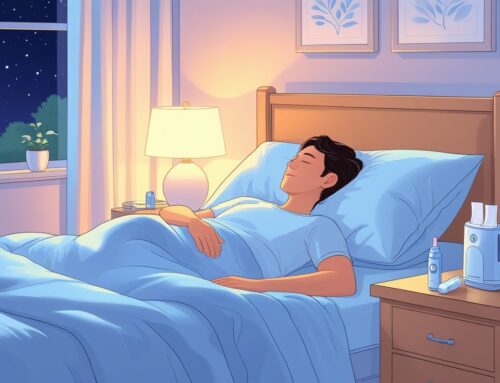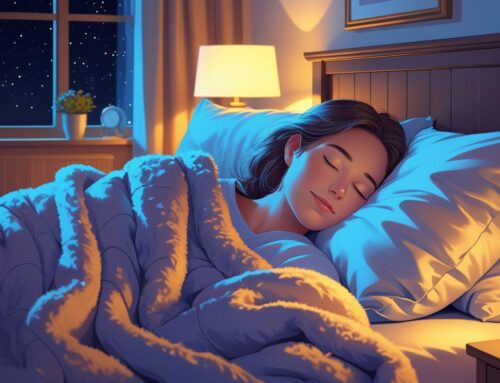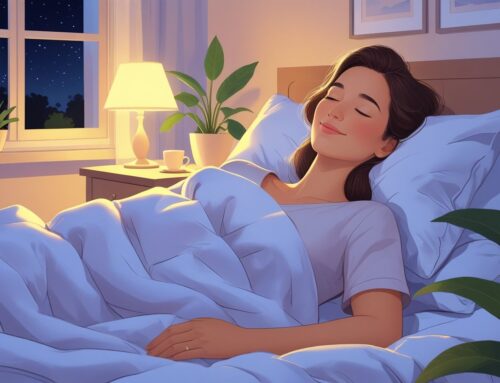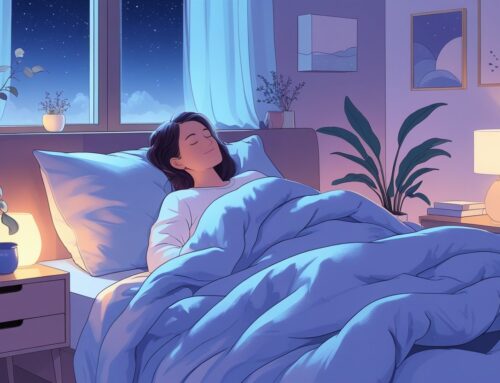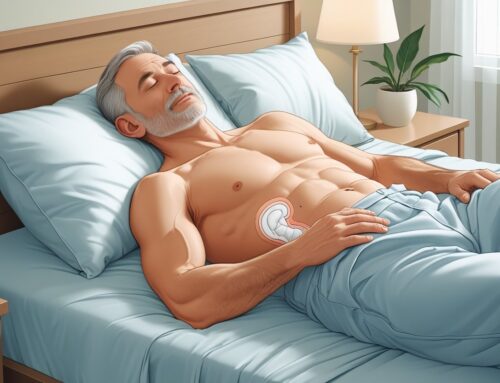Many people find themselves going to bed late but still waking up early, feeling tired and confused about their sleep habits. This happens when the body’s internal clock, or circadian rhythm, does not match the sleep schedule. Stress, screen use before bed, and daily routines can all contribute to this problem. Disrupted sleep cycles or health issues may lead to waking up early even after late nights. Light, noise, and habits like drinking caffeine or alcohol can also interfere with sleep.
Changing daily routines and improving the sleep environment can help bring the sleep-wake cycle back on track. Once the causes of sleeping late and waking early are clear, it becomes easier to get more continuous and restful sleep.
Key Takeaways
- Sleep timing problems can result from a disrupted internal body clock.
- Daily habits and surroundings affect sleep quality.
- Adjusting routines and the bedroom environment can help restore better sleep patterns.
- A supportive and well-ventilated mattress can prevent discomfort and overheating, which can help you fall asleep more easily and stay asleep longer, and reduce early wake-ups.
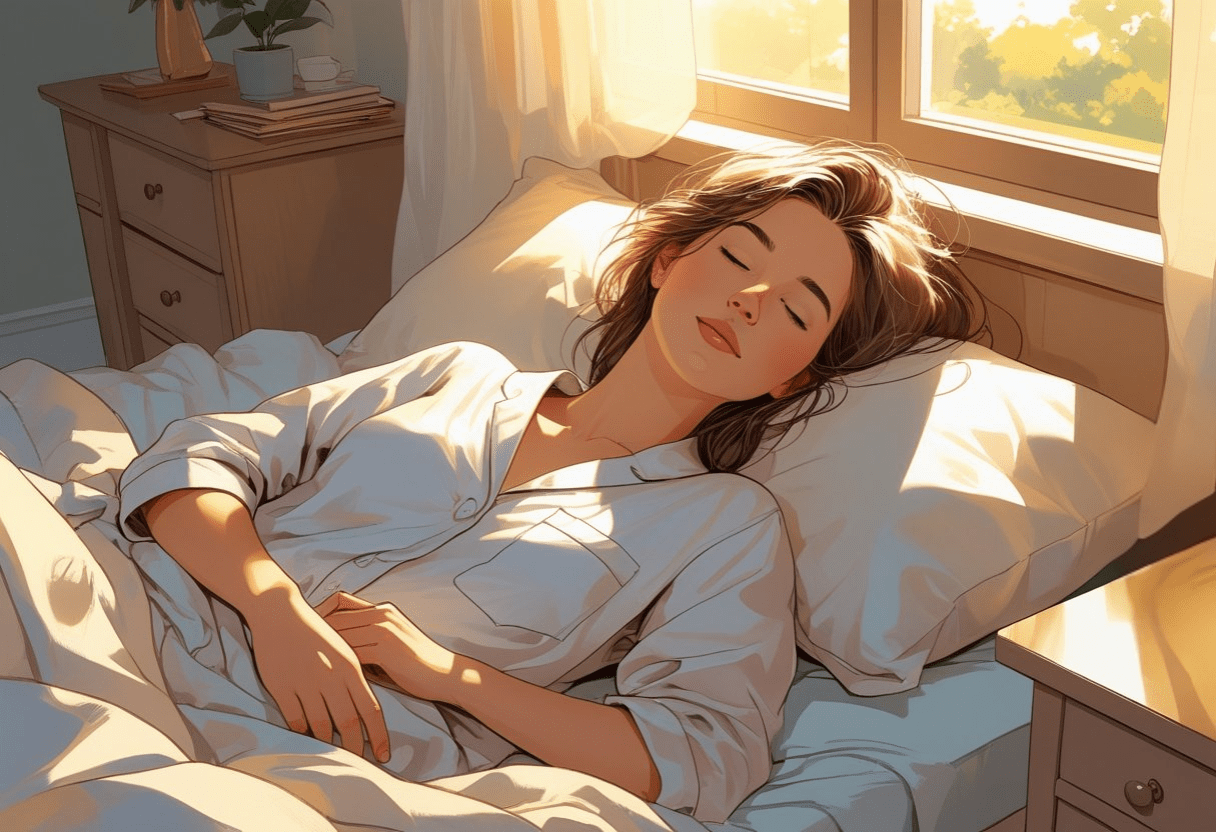
Key Reasons for Sleeping Late and Waking Up Early
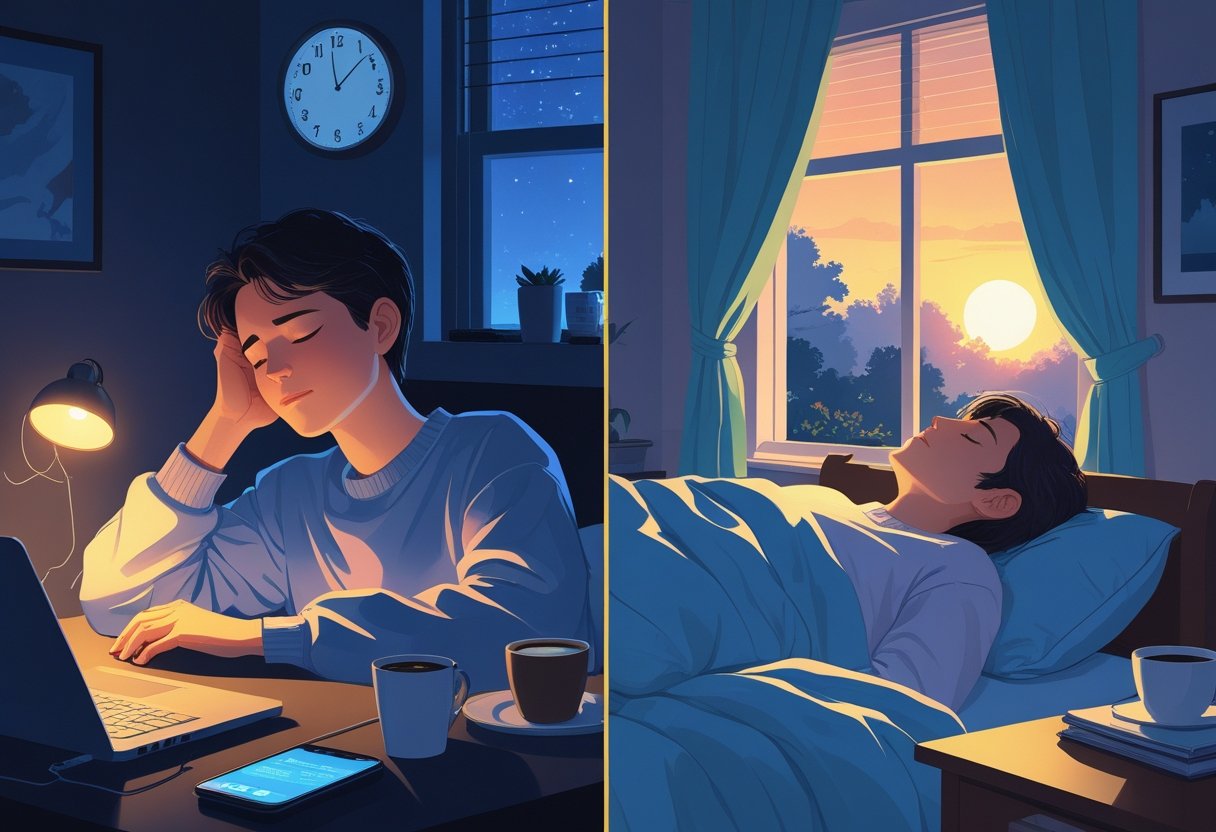
Many people wonder why they go to bed late but wake up early, often feeling tired or restless. Several things can affect this, including body clock changes, trouble staying asleep, stress, and getting older.
Circadian Rhythm Misalignment
The circadian rhythm is the body’s internal clock that tells you when to sleep and wake. Sometimes it doesn’t line up with your schedule. This can happen if you go to bed at different times, use bright screens at night, or have unusual work hours. When the clock is off, you might feel sleepy late but still wake up early, even if you didn’t get enough rest. Changing light exposure and keeping regular sleep hours can help. This explains why people ask, “why do I wake up early when I sleep late?”
Sleep Maintenance Insomnia
Sleep maintenance insomnia is when you wake up during the night or very early and can’t get back to sleep. This leaves you feeling tired and wondering why you woke up so soon. It can happen because of stress, aches, or conditions like sleep apnea. The issue isn’t total sleep time but staying asleep. Fixes can include better sleep habits, stress relief, and sometimes medicine.
Stress and Anxiety
Stress and anxiety can cause early waking. A busy or worried mind interrupts sleep and shifts wake times earlier. Stress hormones keep the body alert, making it hard to stay asleep. That’s why some people suddenly start waking up early. Over time, it can make you more tired and affect focus during the day. Relaxation or therapy can help.
Aging and Changing Sleep Patterns
Sleep changes naturally with age. Many older adults go to bed and wake up earlier. Hormone changes and lighter sleep contribute to this. This can make it hard to stay asleep once you wake. Calm bedtime routines, avoiding caffeine late, and limiting naps can help. Some people use melatonin for short periods, as sleep experts suggest.
Understanding Circadian Rhythms
The body’s internal clock controls when we sleep and wake. This clock explains why some people wake up early even after going to bed late. Genes and daily habits both shape how this system works.
How the Body Clock Regulates Sleep
The circadian rhythm is the body’s 24-hour cycle that sets sleep and wake times. It signals when to feel tired and when to feel alert. The brain’s master clock in the hypothalamus runs this rhythm. Melatonin rises in the evening to help the body sleep and drops in the morning to help it wake. Light is a key factor in setting this clock, telling the brain when it’s day or night.
Disruptions to the circadian rhythm can make the body wake too early. Someone might wonder, “Why do I wake up so early?” This can happen when the rhythm is not aligned with sleep hours.
Chronotypes and Individual Variation
Everyone has a natural sleep pattern called a chronotype. Morning types, or “morning larks,” wake up early and feel alert in the morning. Evening types, or “night owls,” stay up late and wake later.
Chronotypes are mainly genetic. A morning lark waking at 6 a.m. is following their natural pattern. Age also affects chronotypes. Teenagers usually sleep and wake later than adults. Knowing your chronotype can explain why you wake early even after late nights. Early waking may just be your body’s normal rhythm, not a problem.
External Cues Affecting Sleep-Wake Cycles
External signals, called zeitgebers, help guide the circadian rhythm. Light is the strongest cue. Bright light in the morning reinforces waking early. Light before bed, especially blue light from screens, can delay sleep. Other cues include meal times, room temperature, and activity. Eating late or exercising at unusual times can shift your sleep schedule and cause early waking. A cool, dark, and quiet room can help you sleep longer.
Managing these cues can help adjust the body clock. This may reduce early wake-ups and make it easier to sleep later after staying up.
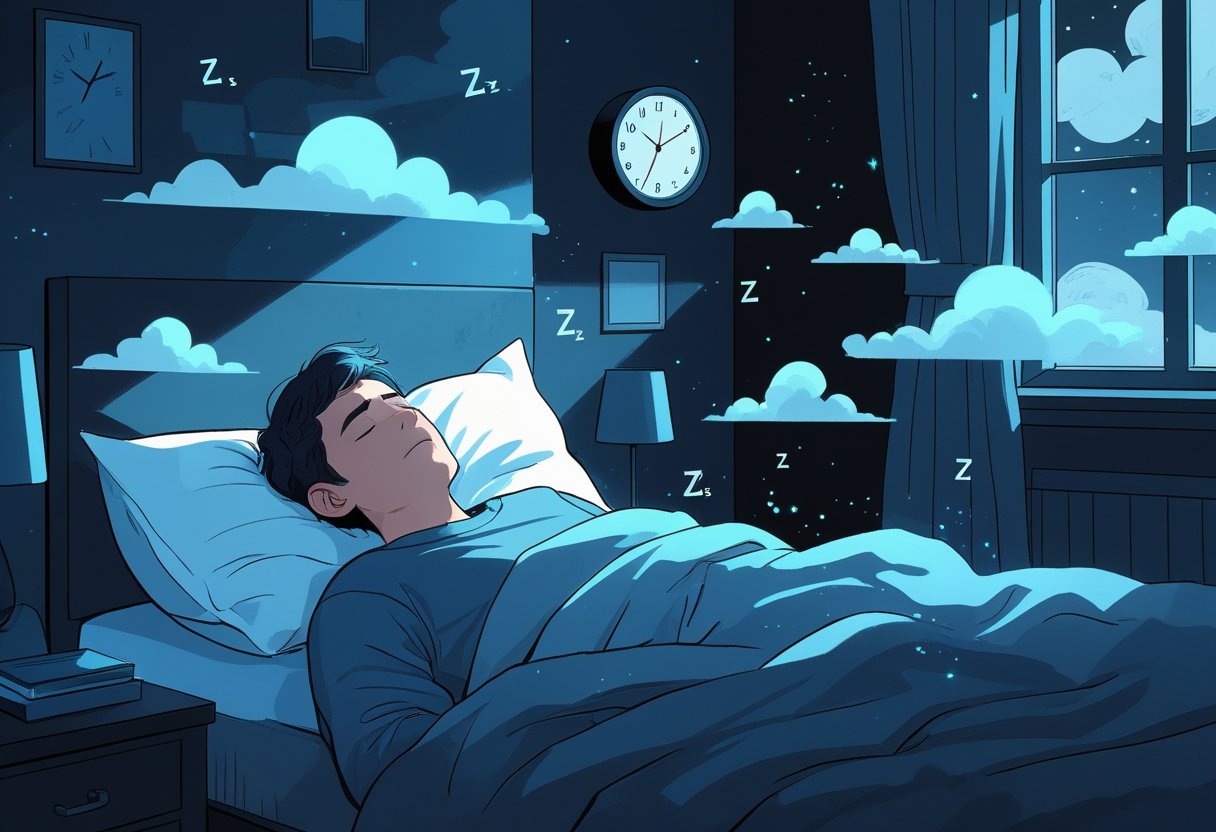
Sleep Disorders and Early Morning Awakenings
Waking up early and having trouble falling back asleep can be linked to specific sleep disorders. These disorders affect sleep timing and quality, causing shorter sleep or frequent awakenings. Understanding the symptoms and causes can help find the right approach to manage them.
Insomnia Types and Symptoms
Sleep maintenance insomnia happens when a person falls asleep easily but wakes up too early and cannot go back to sleep. This can lead to frustration and daytime fatigue. Early waking usually occurs 1-2 hours before the planned wake time and may be related to an internal body clock that is off balance.
Symptoms include trouble staying asleep, waking up repeatedly, and feeling unrefreshed after sleeping. People may ask themselves why they keep waking up early in the morning or why they always wake up early no matter when they go to bed. Stress, irregular sleep routines, or health problems can trigger this condition.
Sleep Apnea and Fragmented Sleep
Sleep apnea interrupts sleep by causing short breathing pauses during the night. These pauses make a person wake up multiple times, even without noticing it. This fragmented sleep can lead to very early waking. People with sleep apnea may wonder why they wake up so early and feel tired despite enough time in bed. Loud snoring, gasping, and daytime sleepiness are signs. Treatments include lifestyle adjustments, CPAP therapy, or other methods to keep airways open.
Mood Disorders Affecting Sleep
Mood disorders like depression and anxiety can affect sleep timing. Depression can cause waking up too early with no way to return to sleep. Anxiety may make it hard to fall asleep or stay asleep. This can explain questions such as why someone wakes up early no matter the bedtime. Early waking can come with sadness, worry, or restlessness. Addressing the mood disorder through therapy or medication can help improve sleep patterns.

Lifestyle and Behavioral Factors
Many behaviors and daily choices affect why someone sleeps late but wakes up early. Things like bedtime routines, food and drink, exercise, and exposure to light or screens in the evening can all play a role. Understanding these factors can help reduce early waking.
Sleep Hygiene Practices
Good sleep hygiene means keeping habits that support steady, restful sleep. Going to bed and waking up at the same time every day helps the body stay on schedule. Irregular patterns can confuse your internal clock and lead to waking up too early. Creating a calming routine before bed can help, such as reading or taking a warm bath. Avoiding stressful thoughts or activities that excite the mind can reduce early awakenings. Keeping the bedroom cool, dark, and quiet supports deeper sleep. Using the bed only for sleep and avoiding late-day naps also matters.
Impacts of Diet, Exercise, and Evening Habits
Eating large meals, caffeine, or alcohol near bedtime can disrupt sleep and trigger early waking. Caffeine stays in the system for hours and can cause restlessness. Alcohol may help you fall asleep but can lead to waking up too soon. Regular exercise helps sleep, but working out close to bedtime can make it harder to rest. Morning or early afternoon workouts are better. Evening habits like late snacking or drinking caffeine can reduce total sleep and worsen early waking.
Role of Technology and Light Exposure
Phones, tablets, and computers at night can interfere with sleep. Blue light from these devices blocks melatonin, the hormone that tells your body to sleep. Lower melatonin can delay sleep and cause waking too early. Limiting screen use at least an hour before bed can help. Using night mode or blue light glasses protects melatonin. Removing electronics from the bedroom can also improve sleep and reduce early waking.
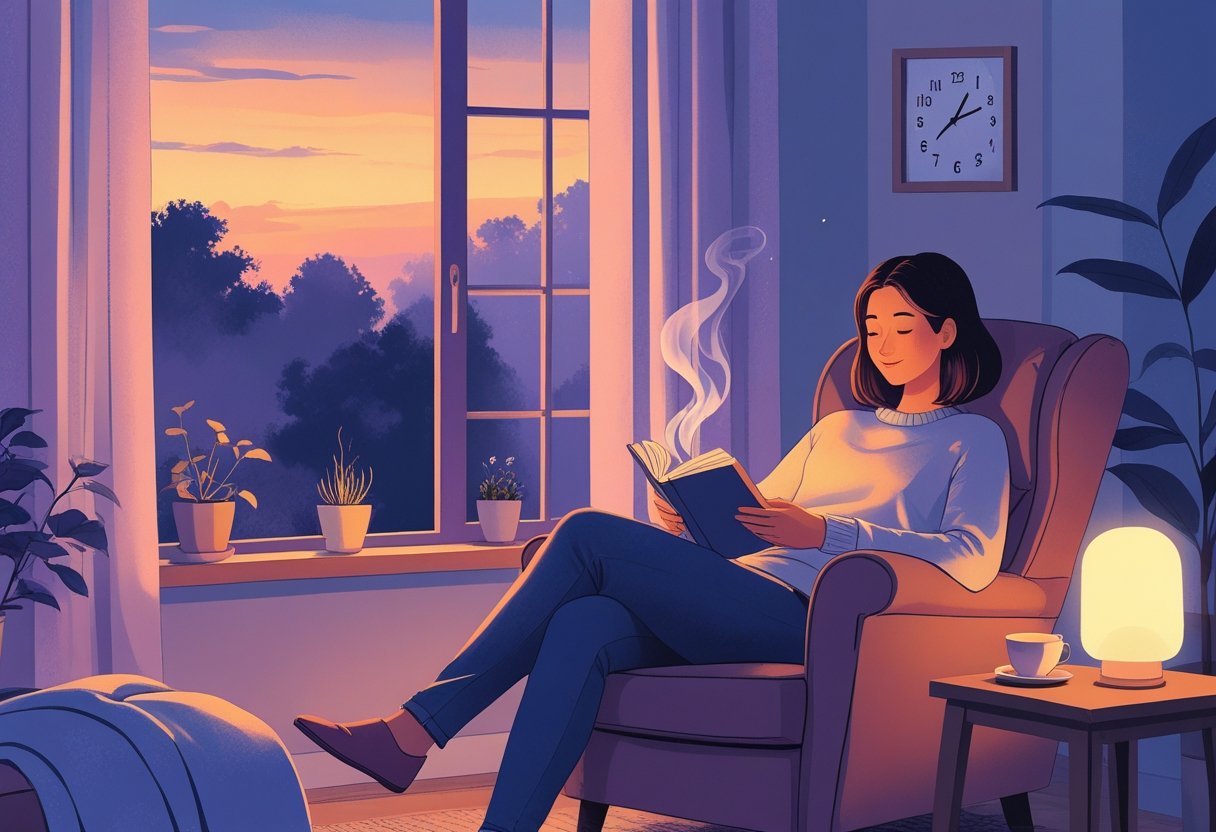
Effects and Risks of Insufficient Sleep
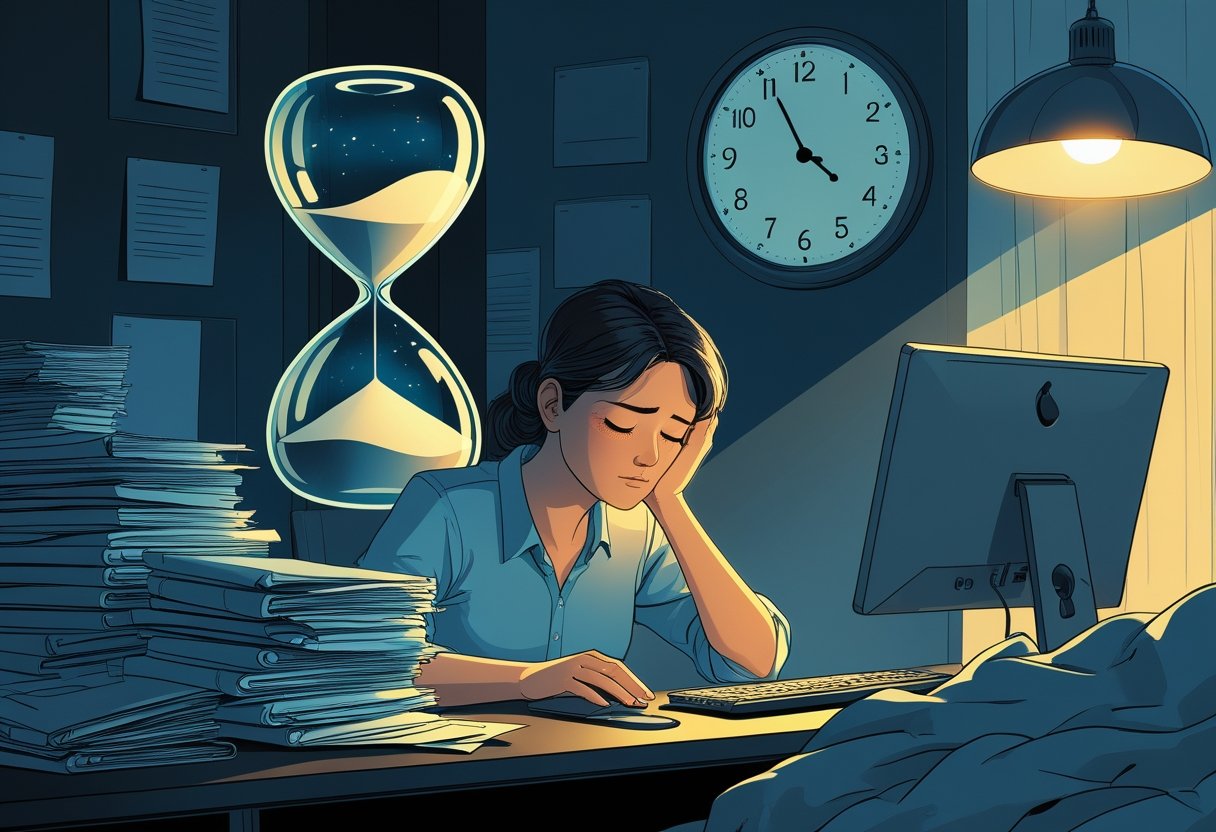
Not getting enough sleep can cause serious problems for both the body and mind. It affects health, mood, and daily abilities, especially for those who sleep late but wake up early, which reduces total rest.
Consequences for Health and Mood
Not getting enough sleep raises the risk of health issues like heart disease, diabetes, and obesity. Hormones that control hunger and stress get disrupted, which can lead to weight gain and higher stress levels. The immune system weakens, making it easier to catch colds or other illnesses.
Sleep loss can also affect mood. People feel more anxious, irritable, or down. Their ability to manage emotions drops because sleep affects the brain areas that handle mood and stress. Sleeping late and waking up early limits the time the body has to repair itself. This can cause dark circles, headaches, and skin problems because cells do not recover properly.
Daytime Functioning and Productivity
Getting up early after a late night often causes sleepiness and low energy during the day. Focus, memory, and decision-making can suffer. Reaction times are slow, which can be risky for driving or using machinery. Sleep loss lowers motivation and slows productivity. Tasks take longer, and mistakes happen more often. This can hurt performance at work or school.
People who wake up too early may struggle to keep a steady mood. Fatigue and poor focus can lead to frustration and affect social interactions. Managing tasks feels harder, which adds stress.
How to Restore a Healthy Sleep Pattern
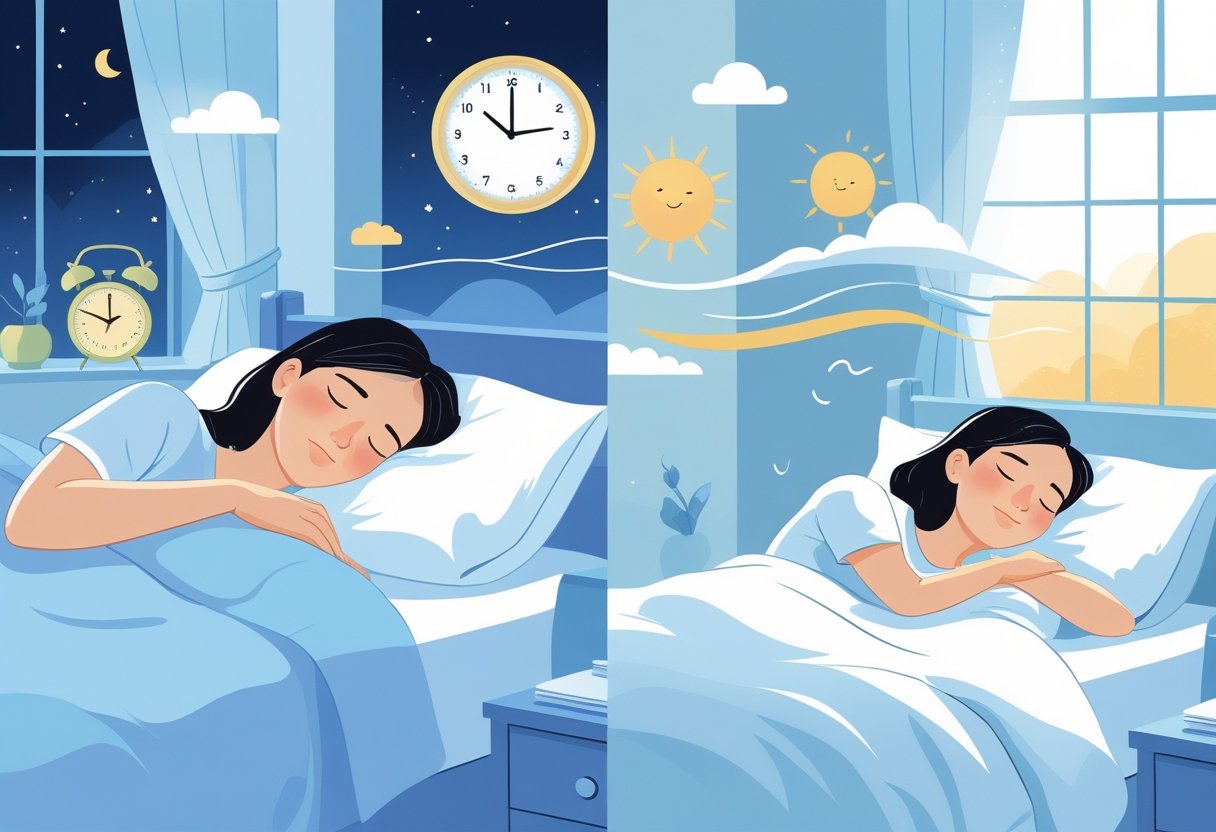
Restoring a healthy sleep pattern means changing when you go to bed and when you wake up. It takes time, small habit changes, and paying attention to your body’s signals. Sometimes, professional help is needed if problems continue.
Tips for Adjusting Bedtime and Wake Time
To shift your sleep schedule, move bedtime and wake time gradually. Try 15 to 30 minutes every few days instead of changing everything at once. This helps your body adjust without extra tiredness. Stick to the same wake time every day, even on weekends. Don’t force an early wake-up if you went to bed late. Doing so can create sleep debt and leave you drained. Short naps or extra sleep in the following nights can help recover lost rest.
Routines before bed, like dimming lights or avoiding screens, tell your brain it’s time to sleep. Cutting back on caffeine and heavy meals in the evening also makes it easier to fall asleep.
Resetting Your Circadian Rhythm
Your circadian rhythm is the body’s internal clock. Morning sunlight helps reset it and shift your schedule earlier. Timing of meals and exercise matters too. Doing these earlier in the day nudges your body clock forward. Bright lights and screens at night delay melatonin and keep you awake longer. Blue light glasses or night mode on devices after sunset can help.
If your rhythm is off due to jet lag or shift work, it may take several days to get back on track by following these habits consistently.
When to Seek Professional Support
If you keep waking up too early or staying up late despite changes, see a healthcare professional. Ongoing problems can signal insomnia, delayed sleep phase disorder, or other issues. A specialist may recommend sleep studies, therapy like CBT-I, or medication if needed. They can also check for medical or mental health problems that affect sleep.
Early or late waking linked to health concerns should not be ignored. Professional help ensures the right diagnosis and guidance for lasting improvement.
How Your Mattress Affects Late Nights and Early Mornings

A mattress that doesn’t support your body can cause discomfort and interrupt sleep. Poor support can lead to aches and stiffness, making it hard to fall asleep or stay asleep.
Sleep moves through different stages, from light to deep. If a mattress is uncomfortable, you may wake up during lighter stages. This can explain why someone goes to bed late but still wakes up early feeling tired. Temperature matters too. Some mattresses hold heat, which can disturb sleep and cause early waking. Mattresses with better airflow help keep the body cooler through the night.
Spinal alignment is another key factor. A mattress that does not keep the spine neutral can cause pain and restlessness. Proper support reduces tossing and turning during the night.
Signs a mattress may be causing early wake-ups include:
- Waking up with aches or pains
- Feeling unrested despite enough sleep hours
- Frequently changing sleeping positions
- Overheating while sleeping
A mattress that provides proper support and cooling can help improve sleep quality and duration. Better sleep lowers the chance of waking up early feeling groggy. For more details on mattress impact, see this discussion on how mattresses affect morning tiredness.
If your mattress is causing restless nights, the PlushBeds Luxury Bliss Hybrid Latex Mattress is worth considering. It combines organic latex and fabric-encased coils to balance comfort and support. The latex contours to the body, and the coils provide a stable base for proper spinal alignment.
The mattress also features a GOTS-certified organic cotton cover and British organic wool. These materials regulate temperature and wick away moisture, helping you stay cooler at night. With medium and medium-firm options, it suits different sleep preferences and may reduce early wake-ups while improving overall sleep quality.
Frequently Asked Questions
Sleeping late and waking early can happen for several reasons. Biological factors, mental state, and your surroundings all play a part. Understanding these helps explain why it occurs and ways to handle it.

